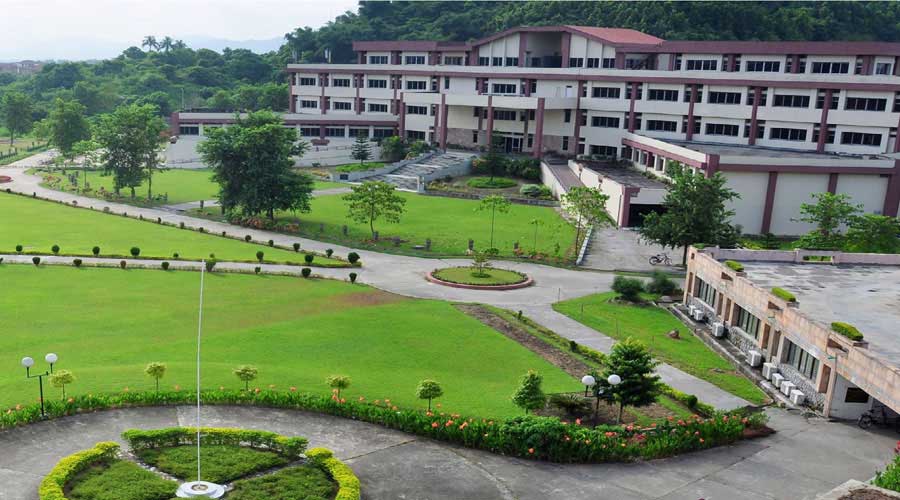IIT Guwahati has made permission mandatory for faculty members to participate in all types of webinars, going a step further than the Union government that had covered only international online seminars.
IIT Guwahati registrar Suresh S.M. issued a circular on Monday, making approval mandatory for faculty members and senior officers for participating in meetings of selection committees, screening committees and tender committees, apart from webinars and seminars.
“We are aware that faculty members and some of the staff members… are invited by other organisations/government departments as external experts for various selection committee meetings/screening committees/ expert committees/ tender committees or as experts for delivering lectures/ participating in webinars/ seminars,” the circular said.
The circular said: “In view of the above, all concerned are requested to take prior permission from the competent authority (dean of faculty affairs for faculty and registrar for staff) to attend any selection committee/ screening committee/ expert committee/ tender committee meetings/ webinars/seminars etc in both online and offline mode.”
A faculty member said the requirement would create hindrances. “For webinars, we are not taking any permission now. But the teachers would feel constrained since permission would be taken from now,” he said.
But Parameswar K. Iyer, dean, public relations, branding and ranking, IIT Guwahati, said the notice was not intended at curbing the freedom of the faculty to participate in events.
“The notification issued by the institute is only to ensure there is a systematic mechanism to collate data on faculty involvement in outreach activities at IIT Guwahati. This is required for providing data for ranking and branding activities of the institute. It is not easy to obtain such data unless processes are put in place to track and monitor such activities. This is not issued for denying permission to faculty for participation in webinars or conferences or any similar academic activities,” Iyer said in an email to this newspaper.
“Any misrepresentation of this institute circular as curbing of faculty freedom of participation in events and committees is absolutely baseless,” he added.
The Union education ministry had last month made approval mandatory for academics to participate in international webinars and conferences. Such approval will be granted only to events not related to security issues and “internal matters”.
The Centre’s guidelines have drawn criticism from academicians globally. The Prime Minister’s Office (PMO) is learnt to have asked the education ministry to explore modifications in the light of the criticism.
Federation of Central Universities Teachers’ Associations (FEDCUTA) president Rajib Ray said the change in the overall atmosphere in the country in the past 10 years was triggering more apprehensions among academics about these guidelines.
“There is an atmosphere of more scrutiny and attack on dissent. The academicians are under more pressure now than in 2010. The latest guidelines might have iterated most things from the 2010 guidelines but these are creating more hindrances to the free flow of ideas,” Ray said.
But Rajeev Kumar, a computer science professor at Jawaharlal Nehru University (JNU), supported the guidelines, citing past practices.
“This standard operating procedure through the ages implies indirect permission to deliver a guest lecture. In online work-culture, none of the above is required. Notwithstanding, when a faculty speaks in a webinar, she or he is associated with an academic institution, bringing the name of the institute indirectly in her/his expressed views. Therefore, prior permission in a webinar should be treated as enforcing accountability,” Kumar said.
He said the guidelines should not be treated as suppression of views. The faculty should impose self-discipline, speaking only on matters of her or his area of expertise and not only subject, Kumar added.











